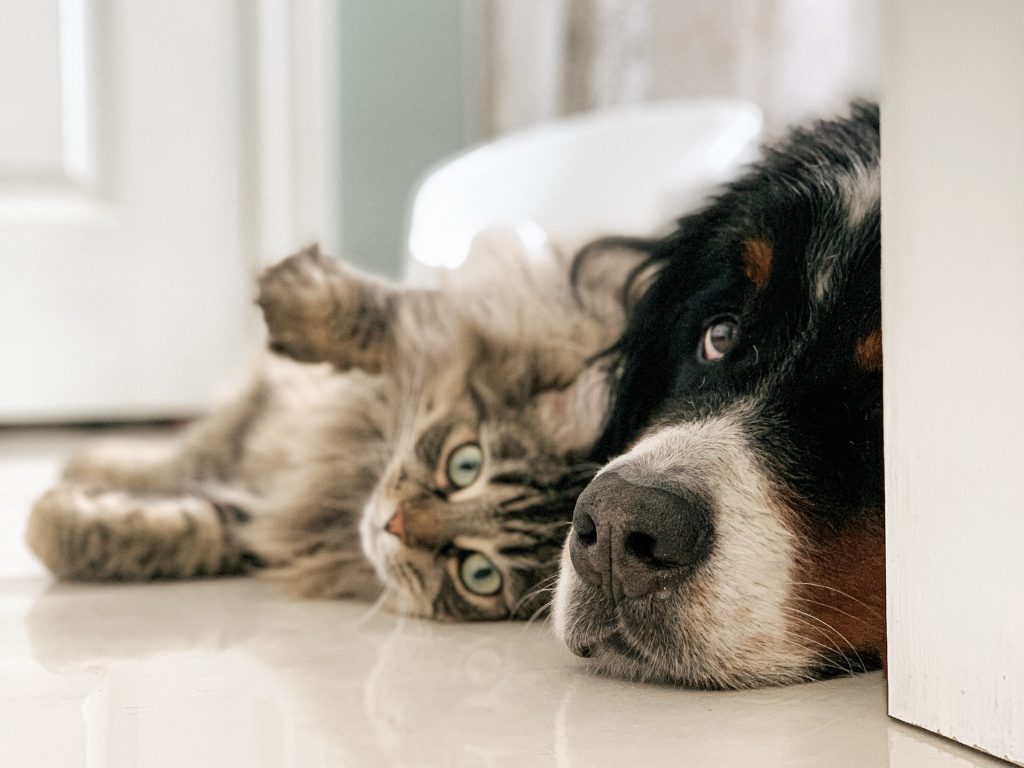Esential oils are generally safe to be used on human adults, but did you know that there are many essential oils that are toxic to pets, particularly cats? Cats possess very little glucuronidation function in their bodies, meaning they cannot break down and process the compounds, specifically phenols, naturally occurring organic compounds in plants – typically incredibly potent in essential oils. Therefore, instead of the compounds being expelled via bile and urine, it will remain in the cat’s liver which in the long run will lead to organ failure.

Furthermore, cats and man’s best friend, dogs have far more enhanced sense of smell compared to humans. While it’s good for certain things, it’s disastrous when it comes to smelling essential oils. What may seem lovely and mild to humans is overpowering and harmful to them. The popular selection for pets such as hamsters, guinea pigs and birds are also likely to be affected by this.
If you are using essential oils on your pets, please make sure to use pet friendly carrier oils such as almond oil, coconut oil and grapeseed oil with a maximum of 2% dilution (50 drops of pet friendly carrier oil to 1 drop of essential oil). Now let’s take a look at what are safe and what are not safe for pets, particularly cats and dogs.
Essential oils safe for dogs:
- Cedarwood
- Chamomile
- Citrus
- Eucalyptus
- Fennel
- Frankincense
- Helichrysum
- Lavender
- Lemongrass
- Rose
Essential oils unsafe for dogs:
- Warm/ Hot oils (Cassia, cinnamon, clove, oregano, thyme and etc.)
- Some mint oils (Pennyroyal, sweet birch and wintergreen)
- Pine
- Tea tree
Essential oils safe for cats:
- Chamomile
- Frankincense
- Helichrysum
- Jasmine
- Lavender
- Rose
Essential oils unsafe for cats:
- Bitter almond
- Citrus oils (bergamot, grapefruit, lemon, lime orange and etc.)
- Geranium
- Herb oils (basil, dill, fennel, rosemary, tarragon and etc.)
- Juniper
- Lemongrass
- Mint oils (eucalyptus, peppermint, pennyroyal, spearmint, wintergreen and etc.)
- Myrhh
- Pine
- Sandalwood
- Sassafras
- Tea tree
- Warm/ Hot oils (cinnamon, clove, nutmeg, oregano, thyme and etc.)
- Wormwood
- Ylang ylang
What are guidelines to follow when using essential oils at home with pets?
- Never directly apply, feed, or leave the oils in areas where your pet may come in direct contact with.
- Never diffuse essential oils around pets as the oils can transfer via the air onto their fur. If you own a cat, cats are self cleaning animals and may lick the oils off their fur. Pay extra attention to older pets, pets with respiratory and liver issues.
- After you’re done with diffusing, make sure to air out the room before letting your pets in.
- If you’re using a passive diffuser, make sure your pets aren’t there otherwise they may knock it over. Especially dogs, cats and birds.
- Although some lovely smelling oils help to deter insects and pests, take note there is a high chance for your pet to have an incredibly negative reaction to it.
- Never force an essential on your pet, even the pet friendly ones, if they don’t seem to like it.
- Avoid combining different types of essential oils; it may end up increasing the potency and becoming overwhelming for your pet.
- After applying essential oils on yourself be it perfume or massage oil, make sure to wash your hands before touching your pets, also prevents them from getting essential oil poisoning if they were to lick you.
- Omit all essential oils if your pet has respiratory issues or allergies.
What are the common symptoms that indicate my pet has been exposed negatively to essential oils?
- Difficulty breathing – Sneezing, coughing, wheezing, cats panting like dogs
- Irritated, watery, and difficulty keeping the eyes open
- Runny nose
- Burning sensation on the face that leads them to paw their face
- Redness of the lips, gum or skin
- Vomiting, drooling or diarrhoea
- Sluggish
- Difficulty standing, wobbling or trembling
- Behaviour changes
- Low heart rate
- Low blood pressure
- Low body temperature
What action to take with pets exposed to essential oils?
- If via airborne, take them out for fresh air immediately.
- If there’s oil on the fur, wash their fur immediately with pet friendly dishwashing liquid.
- If via ingestion, take them to the vet clinic or emergency animal hospital immediately. Do NOT induce vomiting on your pets.
It is understandable if the warnings, guidelines and worst case scenarios may scare you off from ever using aromatherapy with your pets. Essential oils do have powerful medicinal qualities and do have benefits when practiced with a lot of precaution around your pets, such as calming down anxious pets, deterring fleas and pests, anti-fungal properties and so on. Despite their medicinal properties, they are not a permanent solution to treat fleas and other issues. The bottom line is to carry out your research, practice with a lot of care and last but not least, always consult your vet.